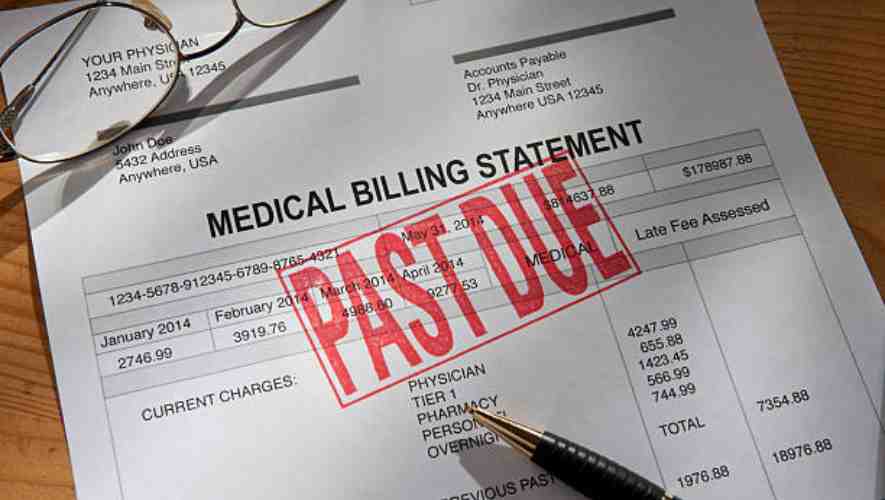Discovering that your belongings have been lost by a moving company can be a distressing experience. Whether it’s cherished personal items or essential household goods, the uncertainty of their whereabouts can cause significant stress and inconvenience.
What to Do When a Moving Company Loses Your Stuff? When a moving company loses your items, immediately report the loss, provide an inventory of missing items, and check your moving insurance for coverage. This initial step is crucial for a possible resolution and compensation.
This guide aims to equip you with the knowledge and steps to navigate through this challenging situation efficiently. By understanding your rights and the process of filing a claim, you can work towards a satisfactory resolution. Let this article serve as your compass in the murky waters of dealing with lost belongings, guiding you towards reclaiming your peace of mind and securing what is rightfully yours.
Initial Steps to Take Immediately After Noticing Missing Items

When you notice that items are missing, it’s crucial to stay calm and methodical. Begin by confirming the absence of these items; it’s easy to assume something is lost in the chaos of moving.
Check all the rooms, closets, and any spaces where boxes could have been misplaced. Remember, it’s not uncommon for items to be overlooked or placed in an unexpected spot during the hustle and bustle of moving day.
Verify the Inventory List
Your next step should be to consult the inventory list if one was created during the packing process. This list is your primary reference and can help you quickly identify which specific items are missing.
If you’ve moved with the assistance of a professional moving company, they often provide an inventory list as part of their service. Carefully go through this list, marking any discrepancies between what’s listed and what you’ve successfully unpacked.
Conduct a Thorough Search
Before jumping to conclusions, conduct a thorough search of your current residence. It’s not unusual for items to end up in the wrong boxes or rooms. Check similar boxes, as items often get grouped with like objects unintentionally. Look in less obvious places too; behind furniture, inside appliances, or even in the garage. This step ensures that you’ve done your due diligence before reaching out for external help.
Contact the Moving Company
If your search comes up empty, and your inventory list confirms missing items, it’s time to contact the moving company. Do this as soon as possible, as most companies have a limited time frame within which you can report lost or damaged items.
Provide them with a detailed list of the missing items, including their condition prior to the move, if possible. This will aid the moving company in tracking down your possessions or compensating you appropriately.
Document Your Communication
Throughout this process, it’s imperative to keep a detailed record of all communications with the moving company. This includes emails, phone calls, and any in-person conversations.
Note the date, time, and the name of the person you spoke with, as well as a summary of the discussion. This documentation will be invaluable if you need to escalate your case or seek reimbursement for your lost items.
Keeping thorough records ensures a clear timeline of events and can help facilitate the resolution process.
Understanding Your Rights and Responsibilities when you lose your stuff

Review Your Contract
Before taking any steps, it’s imperative to review your contract with the moving company or any relevant service provider. This document outlines the terms and conditions of your agreement, including the company’s liability for lost or damaged items.
A thorough review will help you understand the scope of protection offered and any stipulations that may limit the company’s responsibility.
It’s also an opportunity to verify whether all your expectations and requirements were correctly documented before proceeding with any claims or disputes.
Learn About Moving Insurance
Moving insurance plays a pivotal role in protecting your belongings during relocation. It’s essential to differentiate between the various types of moving insurance available, such as Full Value Protection and Released Value Protection. Understanding these options will enable you to make an informed decision about the level of coverage that best suits your needs.
Keep in mind that investing in adequate moving insurance can offer peace of mind and significant financial protection against the loss or damage of your possessions.
Know Your Legal Rights
Awareness of your legal rights is crucial when you lose your belongings. Depending on your location, there may be federal or state laws that protect consumers during the moving process.
These laws typically require moving companies to follow specific guidelines for handling claims and disputes regarding lost or damaged items. Familiarising yourself with these regulations can empower you to take appropriate legal actions if necessary.
Moreover, knowing your rights can facilitate a more effective communication with the service provider, potentially leading to a quicker and more favourable resolution.
Understanding your rights and responsibilities when you lose your stuff is not only about mitigating the immediate aftermath but also about ensuring you are adequately prepared and protected for the future.
By reviewing your contract, learning about moving insurance, and knowing your legal rights, you equip yourself with the knowledge to navigate these challenging situations more effectively.
This approach not only aids in the recovery of your lost belongings but also in the preservation of your peace of mind throughout the process.
Filing a Claim for Lost Items

When you discover that an item is missing, the first step is to file a claim with the appropriate authority or company. This initial phase involves formally notifying the involved entity about the loss.
It is crucial to provide a detailed description of the lost item, including any unique identifiers or characteristics that may help in its identification. Prompt action is not only advisable but often required, as many organisations have strict deadlines for reporting losses.
Gathering Necessary Documentation
To support your claim, gathering all necessary documentation is essential. This documentation often includes purchase receipts, photos of the item (if available), warranty information, and any other records that prove ownership and the item’s value. Providing a comprehensive and organised set of documents can significantly expedite the claims process by offering clear evidence to support your case.
Understanding the Claims Process
Understanding the claims process is vital to navigating it effectively. This process varies significantly depending on the organisation but generally involves an investigation into the claim, verification of the provided documentation, and a determination of eligibility for compensation or replacement.
Familiarising yourself with the process, including any deadlines and requirements, can help set realistic expectations and prepare you for potential outcomes.
Submitting the Claim
Submitting the claim is a critical step where accuracy and completeness of information cannot be overstated. This submission should include the completed claim form, along with all the gathered documentation.
It is important to review all the provided information meticulously before submission to ensure that it is accurate and complete. Incorrect or incomplete submissions can lead to delays or denials of the claim.
Follow-Up
After submitting the claim, regular follow-up is crucial to stay informed about its status and to address any additional requests for information or documentation from the claims processor.
Keeping a record of all communications can be helpful for reference and in cases where disputes arise. Persistence and polite communication are key, as the process can sometimes be lengthy and complex
Conclusion
When dealing with lost items by a moving company, it’s important to stay calm, report the loss promptly, provide a detailed inventory, and understand your insurance coverage.
Taking these steps can significantly increase your chances of recovering your possessions or receiving proper compensation. It’s also beneficial to communicate clearly and persistently with the moving company throughout the process. Remember, while the situation is frustrating, there are pathways to resolution. As you navigate this journey, maintain a record of all communications and documentation related to your move and the missing items. In conclusion, while losing your belongings during a move is a daunting experience, armed with the right knowledge and approach, you can effectively address the issue and work towards a positive outcome.


